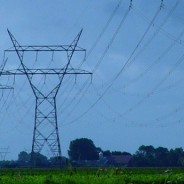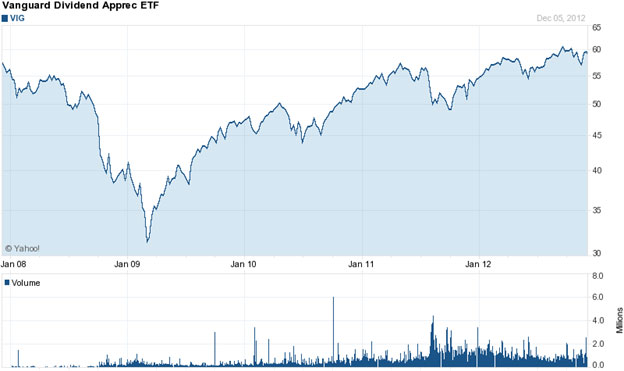Energy Independence Misguided Focus
A recent article posted in the NY Times by Michael Levi highlights my past concerns about Energy Independence talk. Amazingly enough I wrote about Energy Independence last December – https://allenergyconsulting.com/blog/2011/12/15/energy-independence-really/
I want to fine tune my message.
I do see Michael’s perspective in being concerned that we are mistaken about being energy independent as allowing the US to be ambivalent to the worlds energy markets. Clearly, the energy markets are global and will likely to be in the distant future. The theme I think Michael leaves out is the real message politicians and the like need to focus on, versus the concept of being energy independent – that is being productive with the resources we have.
I disagree with many about allowing exports of natural gas. If we are under full employment and the economy is humming along perhaps I could change my mind. However, since this is not the case, we need to think long and hard about why we can’t use our resources in a productive manner. The focus needs to be on stimulating manufacturing. We need to grow America to regain some of what we have lost over the last 30 years.
I like to note, manufacturing is not a path to riches for people, but it is a path to productivity and opportunity. What we have in this country is binary thought. If the working class can’t get a standard of living that allows 40-60K in income plus benefits, we shall accept nothing. It is no doubt a global economy for better or for worse. I have a very contentious thought about wealth which I mulled around with and discussed at bars with my most educated friends. I believe wealth is just like mass. It cannot be created or destroyed. There is a finite wealth in this world. Wealth is discrete globally and when one does better the other will have to do worse.
Let me define wealth more generally than just buying power, but also influence, and the ability to make others act. I believe my thesis holds water when you think about global economic growth. China and much of Asia, at one time, was thought as “third” world; they have grown to become an economic power.
With my thesis in place, the US and Europeans have slowly lost some ground to them holding the economic wealth in balance. The direct impact is the shift in “lower” end jobs in manufacturing. Time would eventually not allow a person making $60K plus benefit with the sole purpose to screw in 4 bolts to be able to compete with people in Asia, making less than $1 dollar a day. Likewise, let me not focus just on the lower income case. CEO’s in the US who do not add value but perpetuate the same concepts and ideas from previous CEO’s that are increasingly making more money than past CEO is also unsustainable. The competing landscape and the wealth balance that will occur, will produce sacrifices to allow others in the world to rise. In a holistic way and perhaps Altruistic – people living in such low standards of living for prolong time becomes inhumane and the sacrifices made from the developed regions have promoted a better lifestyle for them.
However as I point out to my kids that nothing in life is free. The sacrifices have been real and have been exaggerated by the binary thought – all or nothing. In order to balance wealth so that there is reasonable living standards for the masses, the developed country will need to reduce the standards of living, as their standards must compete with the other parts of the world standards. Alternatively one can be stubborn and go with the nothing attitude and live off the state, but this will lead to a very unstable society. I go back to my first point the value of manufacturing is not wealth building. The value comes from volume of employment it can produce. The ability to give masses something to do from 8 to 5 Monday thru Friday. Without this there will be trouble.
The US needs to innovate and take advantage of the abundant resources by creating efficient process to produce things the world uses from fertilizers to plastics to even vehicles. The abundant energy along with sacrifices from the top can ease the lowering of standard of living for the masses as parity is met with the rest of the world. Once again, let me stress both the low paying and high paying jobs. Both tails of the economic spectrum will have to sacrifice; a message that no politician can give since they need funding (high income) and volumes of vote (low income).
Happiness is not derived from money, but money is a requirement in today’s society. In addition, happiness does not come from consuming. We need to move off the binary thoughts and allow compromise. The US should move away from consumerism and regain our productivity focus. Letting any of our resources be exported is giving up on the American dream without fighting for it.
I wish all a safe and Happy Holiday. God bless this country and may we make the right choices.
Please do consider All Energy Consulting for all your energy consulting needs.
Your Energy Consultant,
614-356-0484
Trashing of QE – Plug In Energy Wasted? – Mechanism to choose power providers
A very poignant article by Citi supports my underlying thesis that QE will not be effective enough to outweigh the long-term implications. In summary the article highlights the adaption of people. The reduction of yield creates multiple choices, not a single choice of investment. Case in point is the VIG ETF, those stocks with high dividend are being rewarded as they have been seen as the “new” investment vehicle relative to the treasury.
As noted in the article; “It seems that the market is sending clear signals to companies “if you want your shares to outperform then distribute, don’t invest.” I would also add the traditionally larger and stable stocks are given an extra “safety net” as one could consider them too big to fail and we have seen what the government does for those types of investments. My own investment habits have changed and I am to be a “proud” owner of VIG as I just can’t have my money “SAFE” earning less than 1% in the bank. Also not noted in the article is the explosion MLP traded stocks. These stocks are forced to distribute earnings and investors are diversifying their portfolio with this type of stock as they give you significant yield.
QE is borrowing from the future growth. In some sort of selfish way one could justify it, assuming it was producing enough bang for the buck to reduce the near term misery in order for the future to have growth. However, I believe time will show that it will not be worth it.
On a lighter subject matter I came across this article largely from a tweet indicating “wasted” plug in power. What I found fascinating is the number one plug-in was aquariums. I consider myself an aquarist. At one time I had almost 10 aquariums active in my house with a large 75 gallon salt water tank. I had to get rid of most of them as I have become very busy. The “wasted” statement really struck me. To put the connotation of waste on using energy to have an aquarium is questioning discretionary entertainment.
Many would consider driving to a theater – whether movie or play – a waste of energy and money. In addition in the grand scheme of things in order to have something that entertains you year round, the energy portion of the bill is around $250 a year (2190kwh *0.15-0.10 $/kwh). A true aquarist would tell you the energy portion represents a very small part of your cost structure. They also note the high consumption of video game consoles XBOX and PS3. Of course the footnote on those are assuming you left them on 24X7. If we assume a more reasonable level of half that time we are looking at entertainment cost of less than $80/year. This amounts to much less than a weekly trip to Starbucks. I do agree with their one conclusion “Individually, the energy-savings opportunities of any given single plug load tend to be relatively small; only in aggregate do efficiency gains really start to make a difference.”
My other conclusion from the report is to highlight the value of electricity and how it has allowed entertainment to drift to the household in a very cost effective manner. Before we had to drive and gather significant funds to go to the arcade, zoo, aquariums, or theater now we can do much more in the comfort of your own home. Those wanting the quickest solution to being less “wasteful” need to think about increasing the cost of power. Based on my years of experiencing forecasting load for all parts of the country, electricity is one product which can buck the trend of economic growth, but at certain price levels people will change their behavior.
Last but not least, this relates to a recent job I did for my client. I had a client who was a relatively large energy consumer. I structured a quite competitive RFP for his energy load and saved them millions a year. Alternatively they could have gone to broker and had them help them. However the broker would have made the deal with his incentive tied to the provider plus have taken a much larger share of the savings. Case in point is this article describing the Belleville city aggregation which they later approved. I believe the statement made by the “consultant” is misleading –“ Good Energy does not charge the city for its services, McMorris said. The company’s consultant fees are factored into suppliers’ bids. “Our company is on your side… We are negotiating for you with the energy supply company,” McMorris said.”
Based on the statements, the “consultant” gets nothing unless the deal goes through. They are not acting as consultants, but I consider them aggregators/brokers. A real consultant will tell you the best decision for you AND not be incentivized to make you do something versus status quo. This is the position I have taken. I am trying to engage people and help them evaluate their energy planning decisions. And I want no part in getting compensation from the entity that has the greatest stake in making you change. Shopping your load is smart but you got to do it and to understand all the issues. If you are thinking about shopping your load AND you have significant quantities of load, please give me a call and I could save you millions – 614-356-0484.
I had a great year and have much to give, thanks to Thanksgiving. As always please do keep All Energy Consulting in mind for all your energy consulting needs – from market outlooks, to training , to engineering issues, and to energy planning.
Happy Holidays from Your Energy Consultant,




